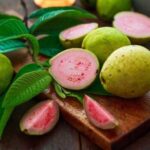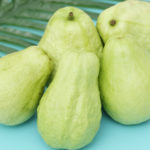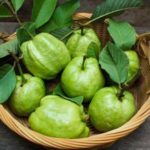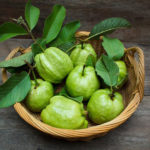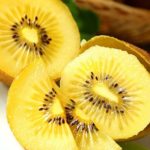The Truth About Chemically-Treated Guava
Guava is a tropical fruit that is fairly easy to cultivate and affordable to purchase, yet some sellers still subject it to harmful chemicals to expedite the ripening process for quicker profits.
Additionally, certain guavas imported from China are treated with preservatives to maintain an appealingly fresh and vibrant appearance, deceiving unsuspecting buyers.
Recently, a type of guava dubbed the “peach guava” has emerged, predominantly sold in Dalat. Vendors peel away the natural outer layer of the fruit, then soak it in chemical dyes and green coloring to create a deceptively lush and glossy appearance.
Identifying Guava by Its Skin
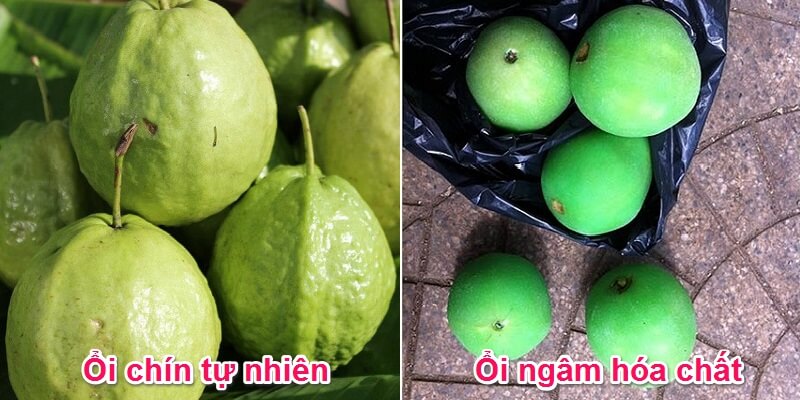
Naturally Ripe Guava: Exhibits a bright, taut skin with a slightly rough, grainy texture, and prominent veins.
Chemically Treated Guava: Features a deep green, shiny, and smooth surface devoid of any veins.
Examining the Stem and Leaves
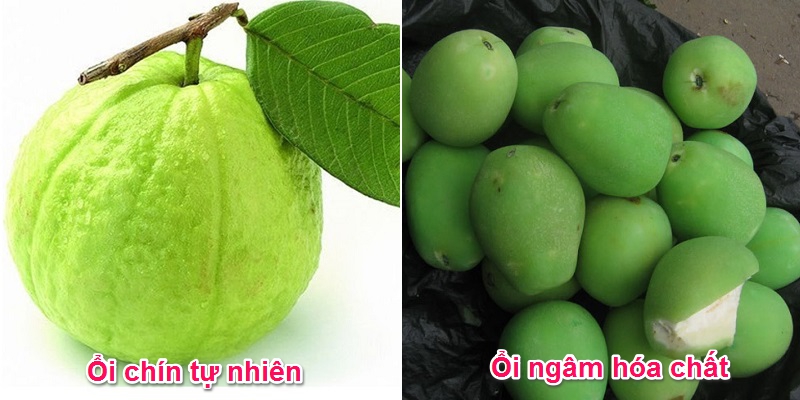
Naturally Ripe Guava: Often presented with intact stems and leaves for enhanced aesthetics. The stem is small, fresh, and either green or brown, while the leaves are a deep green, neither dry nor withered.
Chemically Treated Guava: Typically lacks a stem due to prolonged preservation. If a stem is present, it was likely added by the seller to deceive buyers. These added stems can be easily pulled out. They are usually black or dark brown and appear dry and withered.
Assessing Flavor and Flesh
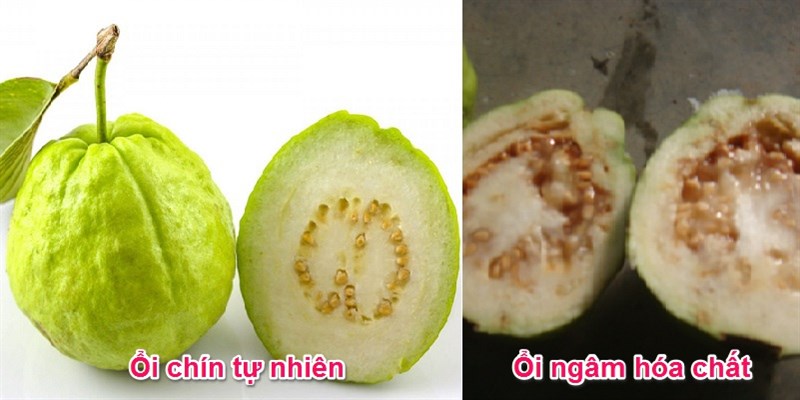
Naturally Ripe Guava: Offers a crisp, naturally sweet taste. The guava feels heavy, with a grainy skin, slightly yellow flesh, abundant seeds, and a fragrant, crunchy texture. The best “peach guava” variety tends to be small, with a grainy skin, slightly soft, and very aromatic.
Chemically Treated Guava: Contains fewer seeds, with flesh and skin of the same color, a soft and mushy texture, and a bland taste devoid of any aroma. The presence of rot indicates the fruit has been treated with harmful chemicals.
Tips for Choosing Delicious Guava
To ensure you select tasty guava, keep the following tips in mind:
– Inspect the fruit carefully to avoid purchasing chemically treated guava.
– Avoid buying guava during the rainy season, as the fruit tends to lose its flavor and becomes slightly sour and less crisp.
– Opt for guava that is in season, particularly during the autumn months from June to October. During this period, guava is more affordable, fragrant, and tastier than off-season fruit.
– Choose guava with intact stems and leaves, and a firm feel. Avoid fruit that appears bruised or damaged.
– Select guava with a slightly brighter hue, indicating ripeness, with the stem end being slightly more mature.
– Purchase guava from reputable sellers or directly from orchards to minimize the risk of chemically treated fruit.
“Boost Your Child’s Immunity and Brain Power with This Common Vietnamese Fruit: A Four-Fold Vitamin C Punch”
“The humble guava is a nutritional powerhouse, packed with vitamins and minerals that offer a plethora of health benefits. Doctors and nutritionists alike rave about its exceptionally high levels of Vitamin C and Vitamin A, which are essential for boosting immunity, promoting eye health, and enhancing cognitive function in children. This unassuming fruit is truly a gift of nature, offering a delicious way to support your overall well-being.”
Guava: Where to Buy and Price Guide’>The Ultimate Guide to Varieties of Guava: Where to Buy and Price Guide
Guava is a beloved fruit in Vietnam, often enjoyed as a dessert or a tasty snack after meals. With a plethora of guava varieties available in the country, today we delve into the most popular types that you can find. At [Company Name], we pride ourselves on offering an extensive range of guava fruits of the finest quality and at the most competitive prices in the market.
























